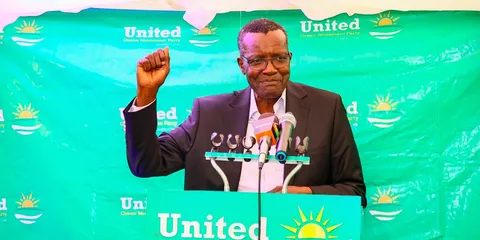Former Chief Justice David Kenani Maraga has thrown his hat into the ring for the 2027 presidency. In public appearances, interviews, and town halls, Maraga outlines a bold vision for reform rooted in integrity, the rule of law, and citizen empowerment. Here’s what he promises — and what it could mean for Kenya.
What Maraga Is Promising
Restoring Integrity in Governance
Maraga vows: “I will not steal from you and will not allow anybody to steal your money.” 
No patronage businesses: “I will not allow my family or friends to do business with the government.”
Upholding the Rule of Law
He promises strict compliance with the law, fairness, and ending impunity.
Stronger accountability for corruption, especially theft of public resources.
Citizen-Led Manifesto and Policy Feedback
Maraga wants a campaign and manifesto that reflect what ordinary Kenyans want. He is building digital platforms for public input.
He aims to rely on grassroots funding rather than moneyed elites. Small contributions (even from boda boda riders or mama mboga) are encouraged.
Fixing Public Services & Tackling Corruption
He criticises poor leadership for failing the citizens—doctors and teachers going unpaid, hospitals lacking medicines.
He pledges to end mis-allocation of budgeted funds and ensure transparency.
Youth Engagement / Generational Change
Maraga appeals to Gen Z, saying they are fearless, tribe-less, and fed up with empty promises.
He wants younger people involved in governance, not just as followers but as partners in crafting policies.
What He Faces: Challenges & Critiques
Lack of deep coffers: Maraga admits he doesn’t have the wealth many politicians do; he is counting on small contributions, which is noble but may be a logistical hurdle.
Skepticism over execution: Many Kenyans are used to seeing grand promises; the key hurdle is delivering — ensuring that promises translate into measurable action.
Political resistance: Powerful networks built over years of patronage may resist reforms especially those that target corruption and misuse of public resources.
Need for structural change: Some promises depend on legal, constitutional, or institutional reforms — not just executive will. That means collaboration with Parliament, Judiciary, civil society, even adversarial actors.


You must be logged in to post a comment.